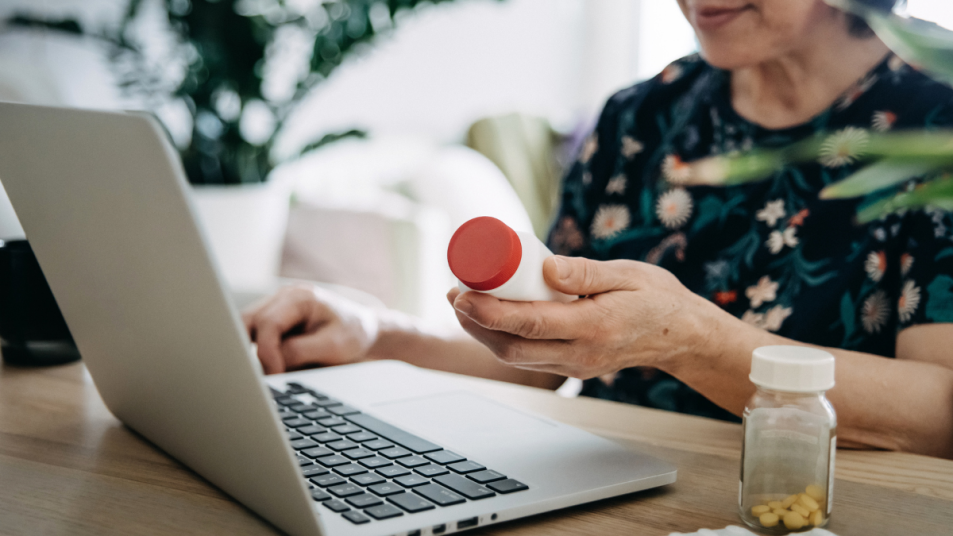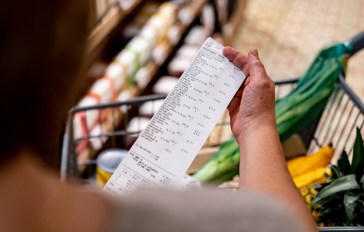Could You Accidentally Fall for a Prescription Drug Scam?

As we all spend increasingly large parts of our day online, internet scams are becoming more and more prevalent, not to mention savvier. One particular con known as the prescription drug scam has become especially common, with fake companies targeting people in their forties, fifties, sixties, and older in the hopes that they can be duped.
Just recently, members of a fake “medical marketing” company faced charges for conning almost $200,000 out of people, while a doctor and pharmacist in Alabama were sentenced to prison time for running their own fake prescription scheme.
What does a prescription drug scam look like?
There are a number of different scams related to prescription drugs to watch out for. Some of the typical ones include (but aren’t limited to):
- Websites that promise prescription drugs at lower prices than what they typically cost and try to get you to sign up immediately.
- Fraudulent organizations sending placebo meds instead of real ones or lacing medications with other drugs to lower costs.
- Con artists posing as Social Security, Medicare, or other government officials to get access to your medical and financial information.
- Scammers pretending to be Food and Drug Administration (FDA) or Drug Enforcement Administration (DEA) agents who say that you’re being “fined” for making an illegal medical purchase and threaten jail time if you don’t pay up.
While these scenarios may sound scary, there are several simple ways to protect yourself against these types of scams.
Never give out your Social Security number or other confidential information.
If someone is directly asking for your Social Security number, credit card number, or bank account number to fill a prescription, feel free to hang up the phone or not return messages online. You can check Annual Credit Report to ensure that no one has stolen your identity or used your information to open their own accounts in your name.
If you receive a solicitation from someone via phone, email, or even in person claiming to be from the FDA or DEA, you can call the DEA’s toll-free hotline at 1-877-792-2873, and you can file an online complaint with the FDA.
Pay close attention to both the prescription packaging and the medication itself.
Often prescription drugs in these scams look a little off. Maybe the prescription label doesn’t match what you typically see from a pharmacy, or the medication looks or smells different than what you’ve received in the past. Look for those little signs that something may be amiss.
Ask for a second opinion on the medication you receive.
Don’t be afraid or embarrassed to ask a doctor or pharmacist if a specific medication looks suspicious. It’s better to be safe than sorry, especially if you already have a feeling that something’s not adding up!
Talk to your doctor immediately if you have bad side effects or your condition doesn’t improve.
You should talk to a medical professional anyway if any medication is giving you adverse side effects, but be upfront about where you got that medication, especially if it wasn’t from a typical source like your local pharmacy. Many prescription drug scams either send placebo medications in place of real ones, or they even lace prescriptions with other drugs that could be harmful. Again, don’t be apprehensive to say something.
Avoid buying prescription drugs from unverified websites.
If you want a shortcut to know if an online pharmacy is legitimate, see if it has a Verified Internet Pharmacy Practice Site (VIPPS) seal of approval, which is provided by the National Association of Boards of Pharmacy (NABP). Some pharmacies will display this information on their websites, but you can also check the NABP website. Additionally, use Pharmacy Checker to see the safety and rates of various mail-order pharmacies before buying anything.
Be suspicious of any “special deals” or promotions.
If a deal from a website or caller seems too good to be true (such as “Get this $5,000 medication for only $5!”), it probably is. Many scams also reel in unsuspecting people by promising that a prescription promotion will only last for a limited time to try and pressure them into signing up immediately.
Additionally, verified online pharmacies will always ask for a prescription from your own doctor before anything else, so if a website lets you get that medication without filling out that information, there’s a high chance it’s a scam.
When it comes down to it, the most important thing you can do to avoid these situations is to do your due diligence on any businesses you work with and not respond to any organizations or individuals who are asking for personal information. You deserve to get your prescriptions from a safe and secure source.













